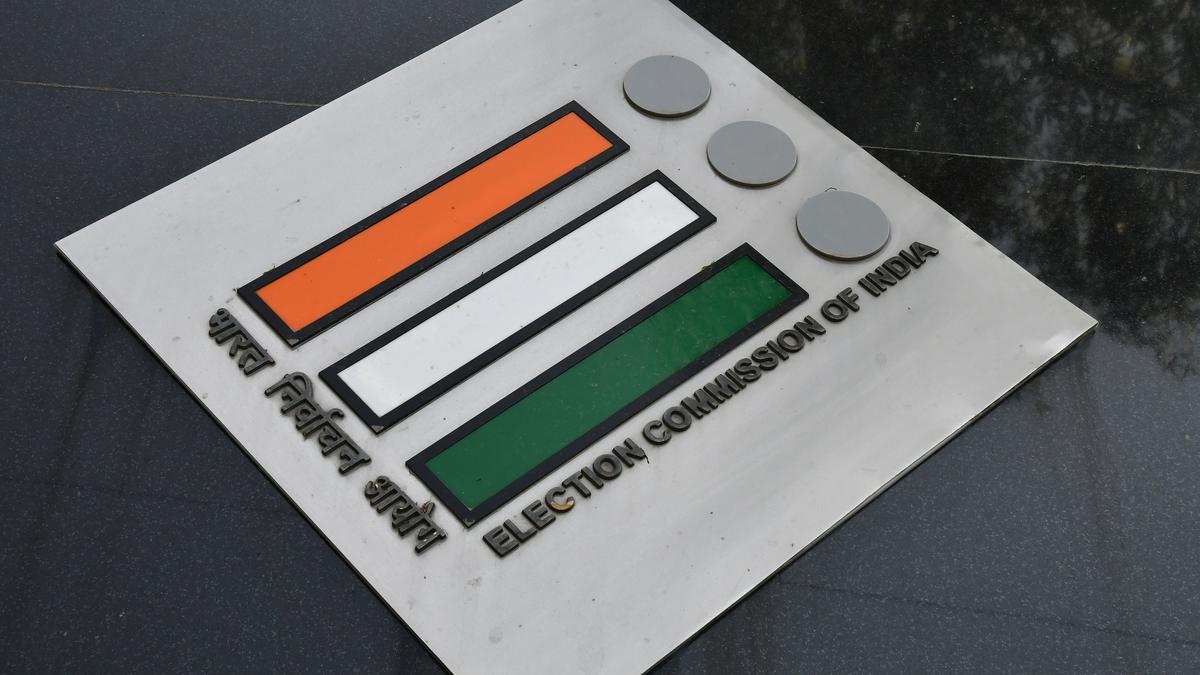News Highlight
Functional independence from the executive must be the driving premise in establishing the Election Commission of India.
Key Takeaway
- Over the course of November and December, a Constitution Bench of the Supreme Court of India heard a crucial case about the method by which the Election Commission of India (ECI) is constituted and Election Commissioners appointed.
- Moreover, at the time of writing, the Court has reserved its judgment, which is expected early in the new year.
Election Commission of India (ECI)
- About
- Firstly, the Election Commission is a permanent and independent body established by the Constitution of India to ensure free and fair elections.
- In addition, it is responsible for setting up free and impartial elections in the Union and States of India.
- The Constitution grants the ECI the power of direction, superintendence, and control of elections to:
- Parliament
- State legislatures
- The office of the President of India
- The office of Vice-president of India
- Furthermore, there is a separate State Election Commission because the ECI does not handle elections for urban authorities like municipalities and panchayats in the states.
- Constitutional Provisions
- Article 324: Entails the provisions related to the chief election commissioner and other election commissioners.
- The Indian President chooses the chief election commissioner and other election commissioners.
- The president also chooses the terms of employment and length of term for the regional and election commissioners.
- The Constitution has not outlined Election Commission members’ legal, academic, administrative, and judicial requirements.
- Article 325: No person to be ineligible for inclusion in, or to claim to be included in a particular electoral roll on the ground of religion, race, caste or sex.
- Article 326: Elections to the Lok Sabha and Legislative Assemblies of States to be based on adult suffrage.
- Article 327: Power of Parliament to make provision for elections to legislature.
- Article 328: Power of Legislature of a State to make provision to elections to such Legislature.
- Article 329: Bar to interference by courts in electoral matters.
- Article 324: Entails the provisions related to the chief election commissioner and other election commissioners.
Powers and Functions of the Election Commission
- Firstly, the Delimitation Commission Act determines the country’s territorial areas of electoral constituencies.
- Creating and updating electoral rolls regularly and registering all eligible voters.
- Additionally, election dates and schedules are announced, and nomination papers are scrutinised.
- Providing political parties with recognition and election symbols.
- In addition, serving as a court in cases involving the recognition of political parties and allocating election symbols to them.
- Appointing officers to investigate disputes over electoral arrangements.
- Developing the code of conduct to be followed by parties and candidates during elections.
- Creating a roster for radio and television advertisements of political party policies during election seasons.
- Advising the president on issues concerning the disqualification of members of Parliament.
- Furthermore, advising the governor on issues concerning the disqualification of state legislators.
- Cancellation of elections in the event of rigging, booth capture, violence, or other irregularities.
Challenges in functioning and Independence of Election Commission
- Security of tenure
- The term of the election commission members is not specified in the Constitution.
- Furthermore, Election Commissioners do not have the same level of tenure security as CECs.
- Post-retirement appointment
- The Constitution does not prohibit the retiring Election Commissioners from taking up a profitable state office or joining a political party after retirement.
- Financial autonomy
- Currently, the budget of ECI is not charged to the Consolidated Fund of India, which tends to reduce its independence and autonomy.
- The conflict between constitutional and legal powers
- The ECI is vested with absolute power under Article 324 but still has to act according to laws made by Parliament, and it can not transgress the same.
- Inadequate capacity
- The ECI has been discovered to rely on various government departments for office finances, legal expertise, security personnel, and other personnel.
Way forward
- Firstly, give all three election commissioners equal constitutional protection, not just the CEC.
- Reduce the ECI’s reliance on the DoPT, the Law Ministry, and the Home Ministry.
- In addition, the ECI should have its secretariat, create its own recruitment rules, and shortlist and appoint officers.
- Its expenditures, like those of other constitutional bodies like the UPSC, must be charged to the Consolidated Fund of India.
- Furthermore, all Model Code of Conduct provisions must be legally enforceable.
Pic Courtesy: The Hindu
Content Source: The Hindu



